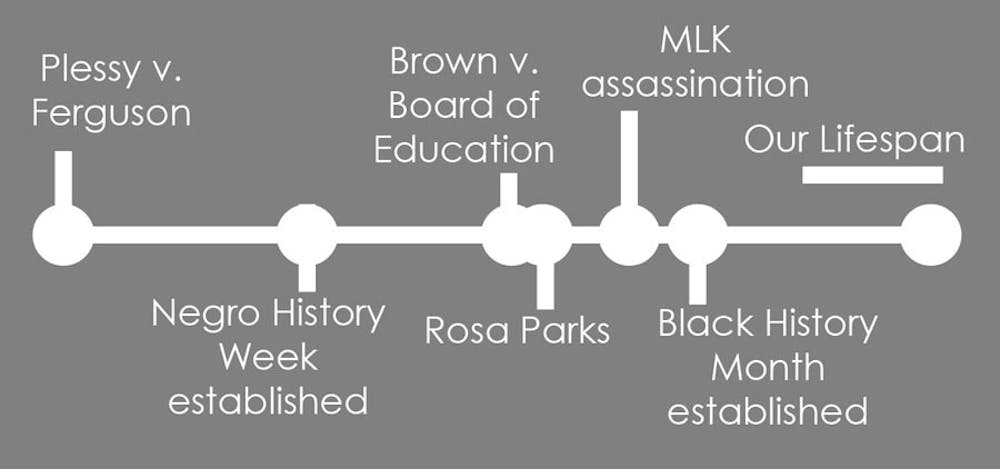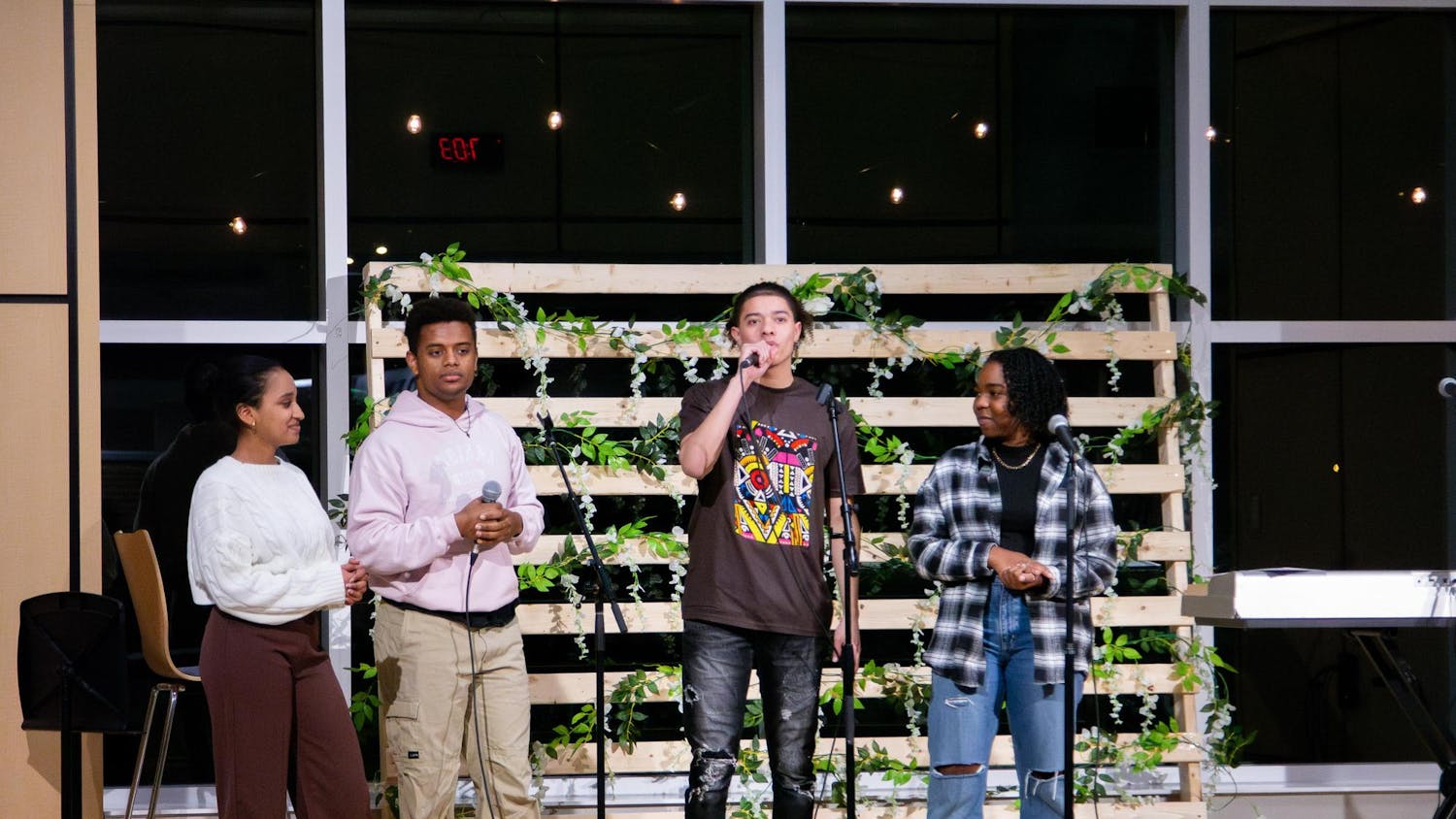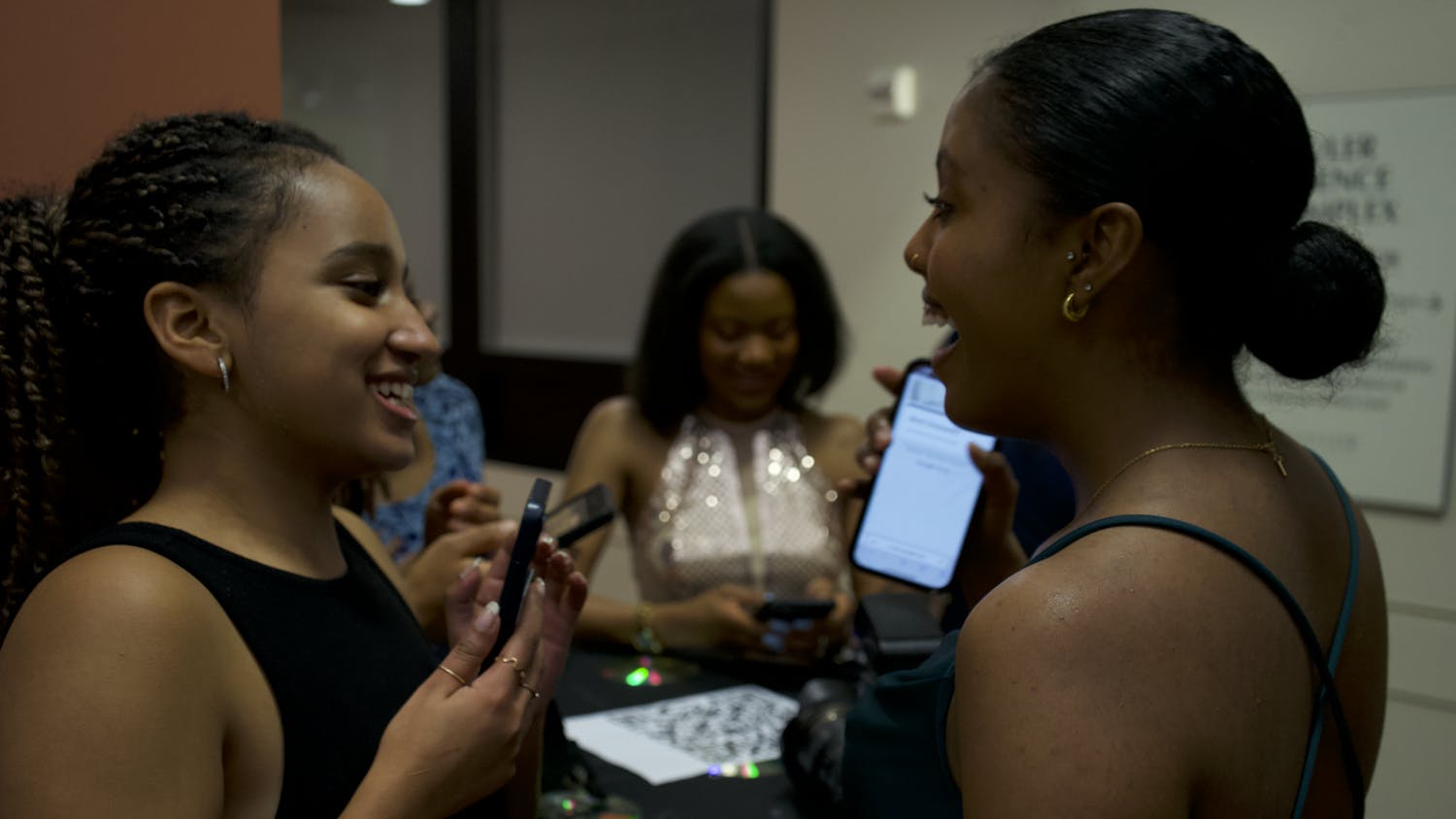By Charnell Peters | Contributor
As millennials, we haven't lived in an America with legalized segregation. Neither have our parents. It's been 120 years since Plessy v. Ferguson, 62 since Brown v. Board of Education, 61 since Rosa Parks incited the bus boycotts and 48 since Dr. Martin Luther King Jr.'s assassination. These events, these people, this past seems far away.
We haven't experienced these events, yet we know about them. So Black History Month seems to have accomplished its goal, right? When Carter Woodson began Negro History Week in 1926 and when Black History Month became a national observance in 1976, much of the focus was identifying and celebrating black history in spaces in which it was absent, especially classrooms.
We've been through those changed classrooms. Today's children learn about Frederick Douglas. They know Rosa Parks and Emmitt Till, Langston Hughes and sometimes even Angela Davis. And they would continue learning about them without a nametag on a specific month that sparks controversy every time it rolls around. Ask Morgan Freeman or any number of other people, black or otherwise, and they'll say the solution to including black history isn't segregating it. It deserves to share space with white history year-round. The observance seems unnecessary.
On the other side, people ask: Why not have Black History Month? Everyone else gets a month. We have a Hispanic Heritage Month and Caribbean-American Heritage Month, among many others. Furthermore, would schools really try to incorporate black history into classrooms, especially outside of the discipline of history, if they didn't have a reason to? Do we need to give people more opportunity to overlook the stories of black people?
Both sides have valid concerns. I don't know if there should or shouldn't be a Black History Month. But we have it, so we might as well do something meaningful with it.
Black History Month should be a tool for advocacy, a space for questioning, a time of celebration and an extension of year-round acknowledgment and learning.
How can Black History Month be a tool for advocacy? Consider the institutional racism that exists today. Black history is cyclical poverty, linguistic prejudice and discrimination, wealth gaps, housing discrimination, misrepresentation and underrepresentation in media, educational disparities, judicial biases and, yes, police prejudice and discrimination.
Black history in June of 2016 will be that, statistically, I will have a harder time finding a job after graduation than my white peers with the same qualifications. My chances of finding employment are even lower if employers think my name "sounds black."
What can be done about these issues? No one has all of the answers, but plenty of organizations are fighting these disadvantages. This month can be a time to research and learn about what people are doing to resolve racial inequalities.
How can Black History Month be a space for questioning? Use the next eleven days to question everything. What elements of Black-American culture are on this campus? What are the differences between gospel and contemporary Christian music? Can or should churches incorporate both? What is the linguistic value of African American English, and how do I perceive it? Eleven days of questioning can lead to discoveries about yourself and people around you.
How can Black History Month be a time of celebration? Get turnt. Listen to some Kendrick Lamar, Ella Fitzgerald, J. Cole and Jill Scott. Read some Toni Morrison, Gwendolyn Brooks and August Wilson. Engage with the artwork of Kara Walker and Horace Pippin. Find black people who have contributed to your discipline, consider their voices and celebrate their work.
All of this can be an extension of year-round thought. March 1 shouldn't be the end.
Black history is about more than just memorizing a few inventors, making lists of first black fill-in-the-blank and watching Civil Rights movies. It's what was happening twenty years ago, a year ago and yesterday. This month should be about taking as much of that into consideration as we can, spending time with it, and letting it change us in a way that only genuine engagement can.
In other words, we can stay woke about black history today, tomorrow and all year long.





